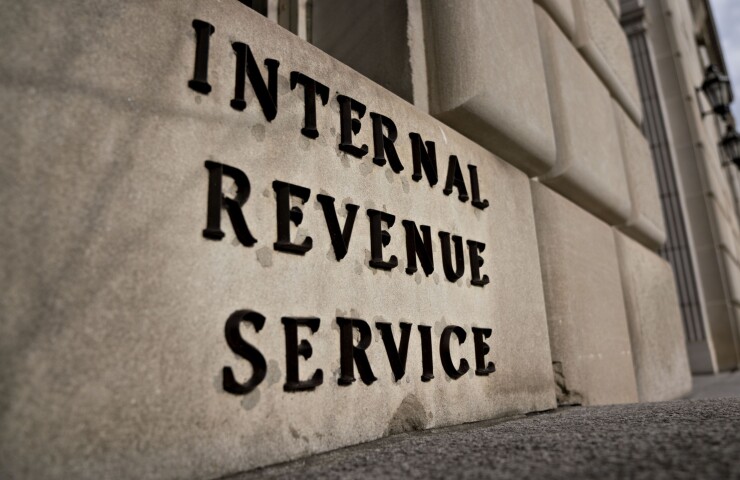
El Paso County, Texas said the Internal Revenue Service has issued a preliminary determination that certificates of obligation issued by the county in 2012 are taxable retroactively to the date of issuance.
The county’s public notice said it was found to be in “noncompliance with requirements of Section 149(g) of the Internal Revenue Code, which prescribes certain expectations for the timely expenditure of proceeds of the Series 2012 Certificates.”
“This is a preliminary determination, not a proposed adverse determination or a final determination,” the county said in the
The IRS informed the county in a letter dated Oct. 23. The county filed its public notice on Nov. 3.
There was no estimate in the public notice how much it might cost El Paso County to make up the difference between the $98.955 million it received from the certificates and the higher amount it would have paid if they were taxable.
The county is repaying the certificates with revenue derived from the county’s ad valorem property tax and a limited pledge of $1,000 annually of the surplus revenues from the county parking garage.
According to the
Among them: the design and construction of the Tornillo-Guadalupe Land Port of Entry bridge connecting with Mexico and the related road and other facilities including land acquisition.
The funds also were designated for construction and improvements to the county’s Eastside Jail Annex as well as courthouse annexes in the northwest and eastern sections of the county.
The money also was to be used for buildings in central El Paso formerly used by the U.S. Army Reserve for conversion to county use.
Other purposes included the purchase of vehicles for county departments including the sheriff; roof repairs and other improvements to county buildings; repairs and improvements to the main county courthouse; and improvements to the county’s information management system.
The 20-year certificates dated July 2012 were payable beginning Feb. 15, 2013, and subsequently, every February 15 and August 15.
The original bond counsel, Fulbright & Jaworski in Dallas, now known as Norton Rose Fulbright, no longer represents the county.
El Paso County officials did not respond to emails seeking further comment.
Earlier this month the IRS said its fiscal 2021 priorities for tax compliance and enforcement involving municipal bonds would be posted in quarterly updates on the webpage of the Tax Exempt and Government Entities Division-Compliance Programs and Priorities.
The initial IRS focus involves potential arbitrage violations of Internal Revenue Code Section 148 by the investment of bond proceeds in higher-yielding investments beyond the allowable temporary period under Treasury Regulation (Treas. Reg.)1.148-2(e).
In fiscal 2020, the top IRS enforcement and compliance priorities were public safety and jail bonds, sinking fund overfunding, and variable rate bonds.





